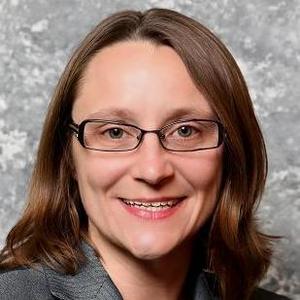Genscape introduces customizable QAP plans, readiness assessments

January 15, 2014
BY Genscape Inc.
With the U.S. EPA’s final quality assurance plan (QAP) ruling expected this winter, Genscape is reporting a growing demand for its QAP and other RIN integrity solutions with more than 40 producers already participating. Producers participating in Genscape’s QAP services have observed an increase in the price they get for their RINs once they have achieved the compliance status. An increasing number of downstream buyers are requiring QAP as part of their RIN purchasing risk management.
One key differentiator driving demand in Genscape’s program is its ability to deliver high-tech, low-touch monitoring-based QAP solutions that allow producers the flexibility to offer QAP-A and QAP-B RINs to their buyers at a low cost. As exhibitors and presenters at the 2014 National Biodiesel Conference & Expo in San Diego this month, Genscape’s experts will be offering customizable QAP plans and readiness assessments to qualified attendees upon request.
Genscape’s validation process utilizes the company’s proprietary monitoring technology to offer a cost-effective and independent solution to ensure producers are meeting the EPA’s RFS2 regulations. Genscape’s patented technology option reduces the workload associated with a QAP program and minimizes the impact on producers’ daily operations. The option Genscape creates by using technology allows the company to redefine traditional auditing by providing a suite of compliance services at no additional cost.
“The producers we’re working with are reporting that our one-stop-shop for QAP services is helping them focus on getting more value for their fuel,” said Susan Olson, vice president of agriculture and biofuels at Genscape. “Furthermore, it’s helping to level the playing field. With a low-cost, comprehensive solution, any size producer can get in the game and sell their RINs for a premium price.”
Advertisement
Advertisement
With Genscape’s QAP option based on ongoing monitoring, quarterly audits are not required. With the monitoring option, producers have the ability to flex between A-RINs and B-RINs depending on the level of assurance needed. Using this flexibility, a producer can meet different requirements from various counterparties and optimize its QAP strategy.
At the National Biodiesel Conference & Expo, Genscape’s Olson and Robert Barton will also be offering their expertise in a panel on Tuesday morning at 9 a.m., Navigating the QAP, in which they’ll discuss available resources, findings to date and strategies for success surrounding QAP. Olson will also provide insight on improving market efficiency with better data and electronic trading as part of the Wednesday afternoon panel “Transparent Transactions: Creating Balance Among Buyers and Sellers.”
Advertisement
Advertisement
Related Stories
CountryMark on July 22 celebrated the completion of more than $100 million in upgrades at its refinery in Indiana, including those related to soybean oil storage. The facility produces renewable diesel via coprocessing technology.
ATOBA Energy and Air Moana are partnering to implement scalable solutions for the supply of SAF. The collaboration aims to ensure long-term SAF availability while supporting local initiatives to develop sustainable fuel production in Tahiti.
While final IRS guidance is still pending, the foundation of the 45Z program is well defined. Clean fuel producers should no longer be waiting; they can now move forward with critical planning and preparation, according to EcoEngineers.
Neste Corp. on July 24 released second quarter results, reporting record quarterly renewable product sales volumes despite weaker margins. SAF sales were up nearly 80% when compared to the first quarter of 2025.
Valero Energy Corp. on July 24 released second quarter results, reporting a profitable three-month period for its ethanol segment. The renewable diesel segment posted a loss, but the company’s new sustainable aviation fuel (SAF) unit operated well.
Upcoming Events










